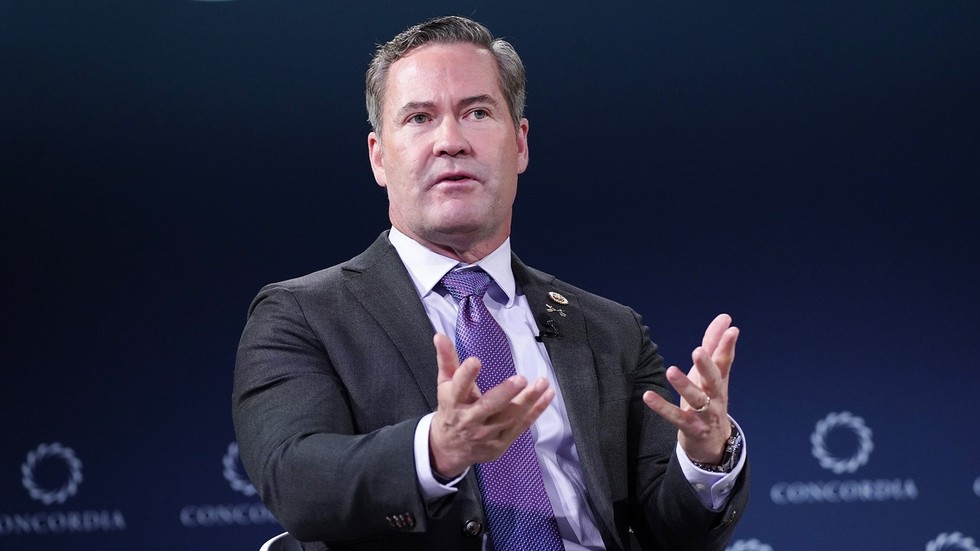A report published by the BBC on Wednesday detailed how the Tren de Aragua transnational criminal organization “learned from the mistakes” of other gangs such as the Salvadoran MS-13 and 18th Street to carry out its unusually rapid expansion throughout the hemisphere, including the United States.
BBC Mundo, the British broadcaster’s Spanish-speaking division, spoke with several regional experts who explained how Tren de Aragua used the Venezuela migrant crisis to expand throughout Latin America and reach the United States while also evolving and expanding in a “never before seen” manner.
FBI retired special agent Daniel Brunner told BBC Mundo that he believes Tren de Aragua now has a presence in “at least” 20 U.S. states, but doubted that the gang is an organized structure with a concrete expansionist project. Brunner, who investigated MS-13 throughout his 20-year tenure at the FBI, claimed that he does not believe that there is a “master plan” to send a cell to one state or another.
“It spread naturally, following the Venezuelan migration, because that is the population it exploits, just as MS-13 moved to New Jersey, North Carolina, Massachusetts or Boston, where there are Salvadoran communities, because they are the ones it extorts,” Brunner said.
The retired FBI agent pointed out that Tren de Aragua “learns much quicker” when compared to the Salvadoran gangs and is taking the experience of both MS-13, 18th Street, and the Dominican Trinitarios and “leaning from their mistakes, accumulating that experience and using it for its own crimes.”
The BBC stated that Pablo Zeballos, identified as a former member of the Chilean Carabineros gendarmerie who has investigated Tren de Aragua since 2015, gave a similar assessment of the criminal organization’s use of other gang’s experiences to enhance its own illicit activities and agreed that the transnational criminal organization has had an “unusually rapid” expansion.
“If the PCC [Brazil’s First Capital Command] took 30 years to become what it is, the Tren de Aragua has been what it is for 10 years, at most,” Zeballos said. “If we look at when it was born, it is like an adolescent that is already acting like an adult.”
Zeballos highlighted how the gang has a distinctively diversified criminal portfolio and takes advantage of any “illicit economic opportunity” in a particularly given area.
“If they decide to exploit motorcycle delivery in an area, it is likely that they own all the vehicles and charge a fee, but in addition, during free hours, the delivery drivers have to steal cell phones for the organization,” Zeballos explained. “I can’t imagine that structures like the Medellín Cartel have dedicated themselves to stealing wallets as a side business, but the Tren de Aragua has.”
“They can engage in drug trafficking — especially with a pink powdered synthetic drug known as tusi, which is often mixed with ketamine, MDMA or fentanyl — profit from migration, own a couple of gold mines in Venezuela, but also steal handbags and phones,” he continued.
Luis Izquiel, professor of Criminology at the Central University of Venezuela, explained to the BBC that the organization was born “some 12 or 14 years ago” in a union that controlled the construction works of a railroad that would cross the Venezuelan state of Aragua, where they got its now-infamous name after extorting contractors and selling jobs on the railroad’s construction sites.
Izquiel pointed out that some of those individuals would end up in the Tocorón prison, where Tren de Aragua’s leader, Héctor “the Child” Guerrero was imprisoned at, and from there, “they began to gain strength.”
Guerrero has been missing since September 2023 after Venezuela’s socialist regime “raided” and emptied Tocorón, which the gang had turned into its main headquarters. It is largely believed that Guerrero negotiated with the Maduro regime before the “raid,” allowing him and his top brass to safely escape at some point before the prison was emptied.
BBC stated in its report that several investigators have suggested Tren de Aragua’s expansion in the region could only have been possible with the complicity of Venezuelan state officials, either by “action or omission,” while others have claimed that the gang is a “state-sponsored” organization with ties to the Maduro regime.
The report further details that the first public evidence of Tren de Aragua’s expansion throughout Latin America was documented in Peru in 2018, although “it may have started before,” according to Venezuelan journalist Ronna Rísquez, who said that the gang “realized they could make money from migration and began to benefit from the business.”
“Tren de Aragua Train is controlling irregular migration, exploiting it in the countries it passes through, and in this way it also gets to know other criminal realities and learns from them,” Zeballos told the BBC. “It’s a perfect economy. Perverse, but perfect.”
Experts consulted by BBC Mundo acknowledged that the expansion of the Aragua Train in the United States was “a matter of time.” Joseph Humire, executive director of the Center for a Secure Free Society (SFS) explained that Tren de Aragua’s presence in the United States began to be detected in 2021 with a few police reports, with more reports in 2022, many more in 2023 until “it exploded” in 2024.
“What remains to be seen is what exactly they are doing in the United States and what their objective is, whether there is actually a plan to expand, in order to understand what the real risk is,” Rísquez told BBC Mundo.
Christian K. Caruzo is a Venezuelan writer and documents life under socialism. You can follow him on Twitter here.

 By Breitbart News Network | Created at 2024-12-21 01:35:22 | Updated at 2024-12-29 02:57:29
1 week ago
By Breitbart News Network | Created at 2024-12-21 01:35:22 | Updated at 2024-12-29 02:57:29
1 week ago







